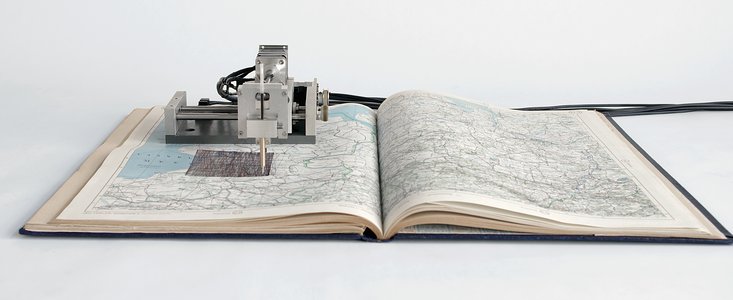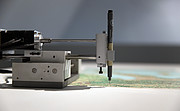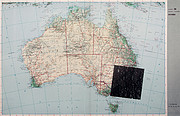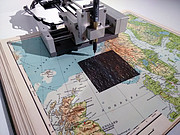Mitteilung
Gewinner des art&science@ESO-Aufenthaltspreis 2015 verkündet
Der diesjährige Aufenthaltspreis an einem der ESO-Observatorien und Ars Electronica Futurelab geht an Quadrature.
15. März 2016
Der Gewinner des art&science@ESO-Aufenthaltspreises 2015 ist Quadrature, eine Künstlergruppe aus Berlin. Die Gruppe besteht aus Jan Bernstein, Sebastian Neitsch und Juliane Götz. Sie beschreiben sich selbst als "ein Atelier für Kunst, Robotik und Licht". Außerdem verbindet sie - wenig überraschend - eine Vorliebe für Maschinen und das Weltall.
Als Teil des European Digital Art & Science-Netzwerks ist dieser Preis das Ergebnis der andauernden Kooperation zwischen der ESO und Ars Electronica. Die Gewinner wurden aus insgesamt 322 Einreichungen aus über 55 Ländern ausgewählt, die der offenen Ausschreibung 2015 gefolgt sind. Quadrature wird mit einem Aufenthalt an einem der ESO-Observatorien in Chile beginnen und anschließend einen Monat bei Ars Electronica Futurelab in Linz in Österreich verbringen. Dort werden sie neue Arbeiten entwickeln und anfertigen, zu denen sie vom vorangegangen Besuch bei der ESO inspiriert worden sind.
Die ESO gratuliert Quadrature zu diesem Preis und freut sich auf einen inspirierende und produktiven Aufenthalt.
Weitere Information
Das European Digital Art and Science-Netzwerk wurde initiiert von Ars Electronica und sieben kulturellen Parntern aus Europa (Center for the Promotion of Science, Republik Serbien; DIG Gallery, Slowakei; Zaragoza City of Knowledge Foundation, Spanien; Kapelica Gallery / Kersnikova, Slovenien; GV Art, UK; Laboral, Spanien; Science Gallery, Irland) mit der Unterstützund des Creative Europe Program der EU.
Der Teilnahmeaufruf endete am 29. November 2015. Künstler waren dazu eingeladen, ein kurzes Video einzureichen, indem sie die Ideen und Themen, die sie bei ihrem Aufenthalt gerne entwickeln und umsetzen würden, vorstellen. Weitere Einzelheiten sind auf der Webseite der offenen Ausschreibung von Art & Science verfügbar.
Eine internationale Jury aus Vertretern der ESO und aller Mitglieder des European Digital Art and Science-Netzwerkes haben die Gewinner ausgewählt.
Links
- European Digital Art & Science Netzwerks
- Webseite der offenen Ausschreibung
- Ars Electronica
- Ars Electronica Interview mit Fernando Comerón, Repräsentant der ESO in Chile
Kontaktinformationen
Fernando Comerón
ESO Representative in Chile
Santiago de Chile
E-Mail: fcomeron@eso.org
Peter Grimley
ESO Assistant Public Information Officer
Garching bei München
Tel: +49 89 3200 6383
E-Mail: pgrimley@eso.org
Über die Mitteilung
| ID: | ann16014 |




